10 Advantages of Chatbots in the Healthcare Industry

By Abhinav Girdhar | Last Updated on April 13th, 2024 12:45 pm | 5-min read
The healthcare industry is always under a tremendous pressure and if you are a part of this industry, you must have experienced the lack of human resources and funds.
Table of Contents
To combat these two serious issues, more and more companies in the healthcare industry are opting for chatbots. Chatbots offer an engaging way to communicate with patients and provide them with timely information.Chatbots offer numerous advantages for healthcare providers when done right. They can reduce costs and streamline other administrative tasks. In this article, we’ll take a closer look at what chatbots are and the advantages they offer to those in the healthcare industry.
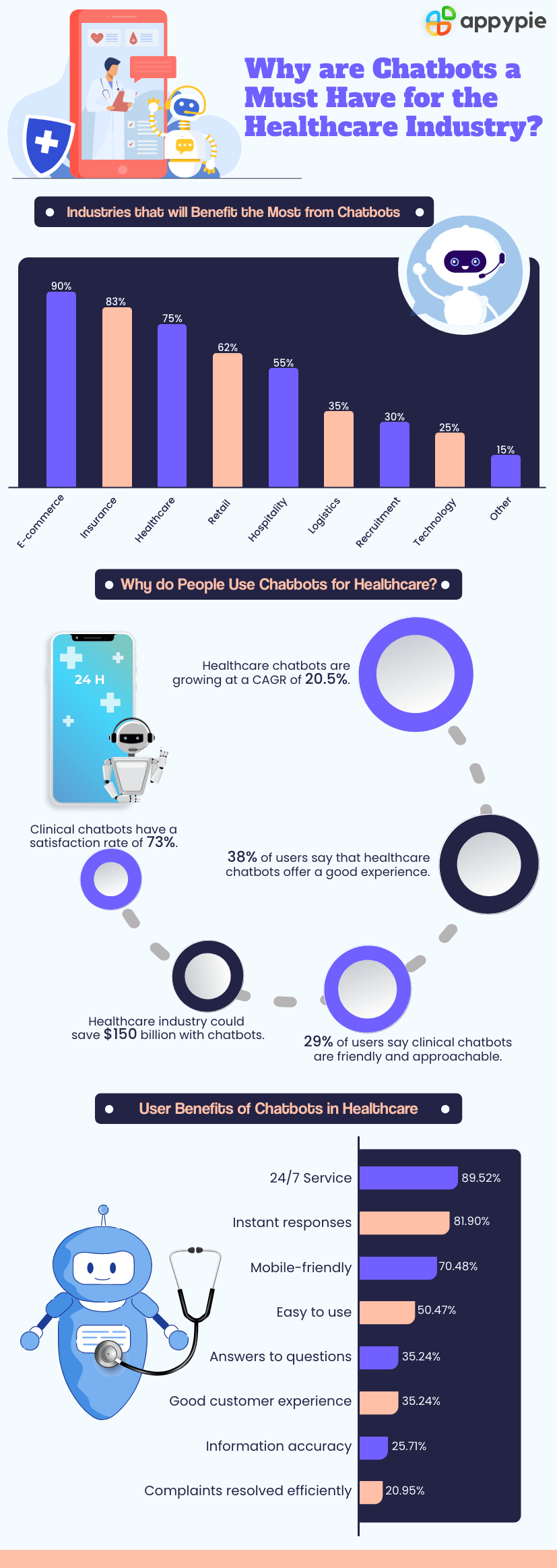
What Are Chatbots?
Chatbots are interactive applications that are designed to simulate human conversations. The main purpose is to provide a convenient way for individuals to reach out to a company and get help. Here’s a visualization of how chatbots work: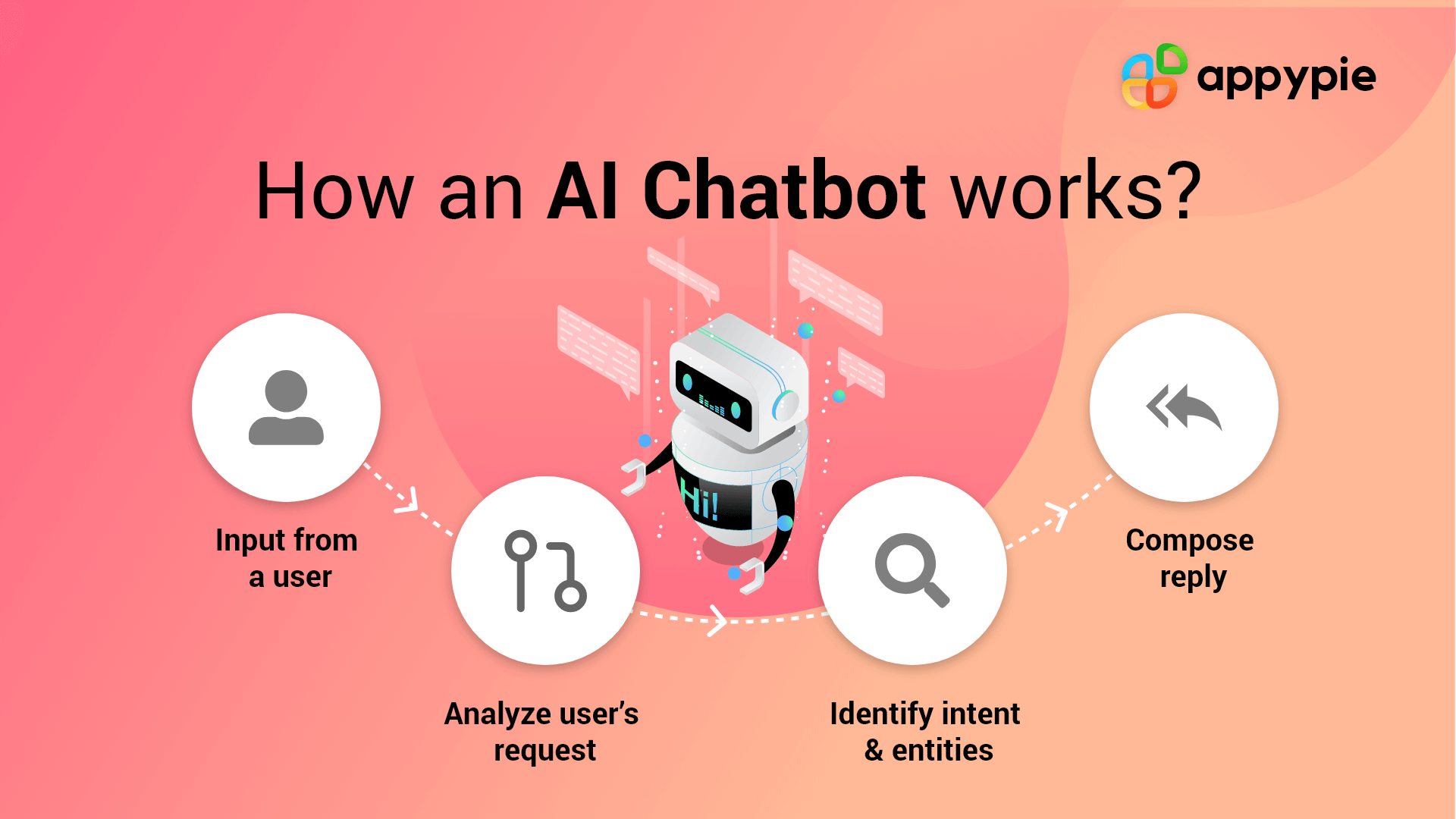 Chatbots use a combination of artificial intelligence and Natural Language Understanding (NLU) to process inputs and compose replies.
There are two types of chatbot:
Chatbots use a combination of artificial intelligence and Natural Language Understanding (NLU) to process inputs and compose replies.
There are two types of chatbot:- Rule based chatbots Rule-based chatbots, also known as decision-tree bots, follow predefined paths. Think of them as a flowchart where users select an option and the chatbot responds with an appropriate answer. These can be as simple or as complex as needed.
- Conversational chatbots Conversational chatbots, or AI chatbots, are essentially like virtual assistants. They are more personalized than rule-based chatbots. They use AI to understand the context and intent of a question to help them formulate appropriate responses.
- Reduced Waiting Times
- Scalable Customer Service
- Timely Medical Advice
- Daily Medication Reminders
- Appointment Scheduling
- Massive Cost Savings
- Patient Feedback
- Automated Invoicing and Payments
- Improved Internal Communications
- Improved Search Engine Optimization
Chatbots enable users to get immediate response and solutions instead of having to pick up the phone, send an email, or even wait in line. In many medical situations, time is of essence. People don’t really have the time to wait for an answer.
A recent report from Ubisend found that 69% of consumers use chatbots to get an instant answer to a question. Customers can simply type in a question and the chatbot responds with an appropriate answer in seconds. This eventually means higher customer satisfaction and better brand image for your business.
When there is a live agent handling customer on phone, chat, or in person, they can handle only a limited number at the same time. This means as the customers increase, the number of live agents will have to be increased, which means the cost will also increase
Chatbots don’t have this limitation. They’re built to handle thousands of enquiries simultaneously. Implementing a chatbot helps any service provider in the healthcare industry scale their customer service without compromising on quality and at a fraction of the cost.
A well-implemented chatbot can provide timely medical advice that makes you feel as though you're consulting with a good gpa medical school student.
NHS 111 is a number that people in the UK can call for urgent medical problems. An example might be if someone misread a prescription and they’re not sure what to do next. People can also call this number if they don’t know who to contact for medical help.
The service was launched in 2013, but the system was becoming overwhelmed. The NHS developed an app with Babylon Health to reduce the burden on the NHS 111 helpline.
Instead of calling the helpline, people could now simply chat with an AI-powered chatbot and get medical advice on what steps to take next.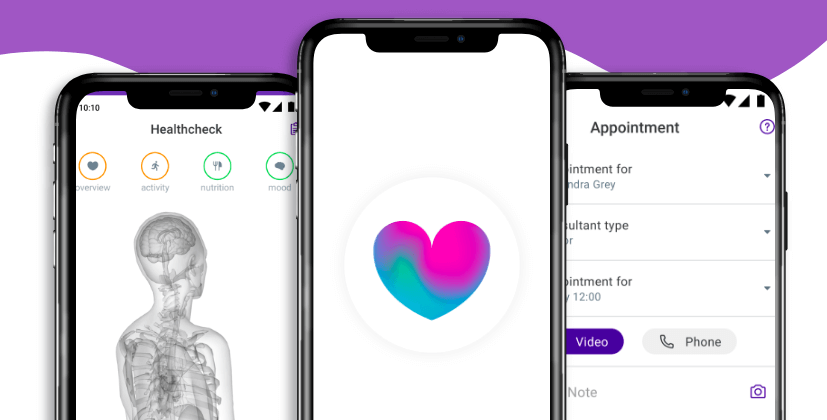 This is just one example of how chatbots are being used in the healthcare industry. Another benefit is that chatbots are available 24/7 to help people in need.
Chatbots can also link to relevant pages. For example, a user looking for medical alert systems can be directed to the right page or connect with a representative if they still have additional questions.
This is just one example of how chatbots are being used in the healthcare industry. Another benefit is that chatbots are available 24/7 to help people in need.
Chatbots can also link to relevant pages. For example, a user looking for medical alert systems can be directed to the right page or connect with a representative if they still have additional questions.
Doctors may prescribe medications to help patients manage various health conditions. But one of the biggest challenges is getting patients to take their medications as recommended. A study found that approximately 50% of patients don’t take their medications properly or forget to do so altogether.
Chatbots can not only be used to dispense medical advice, but also to send daily reminders to patients. Florence is a popular chatbot in healthcare, which acts as a personal medication reminder and health tracker for those that use it.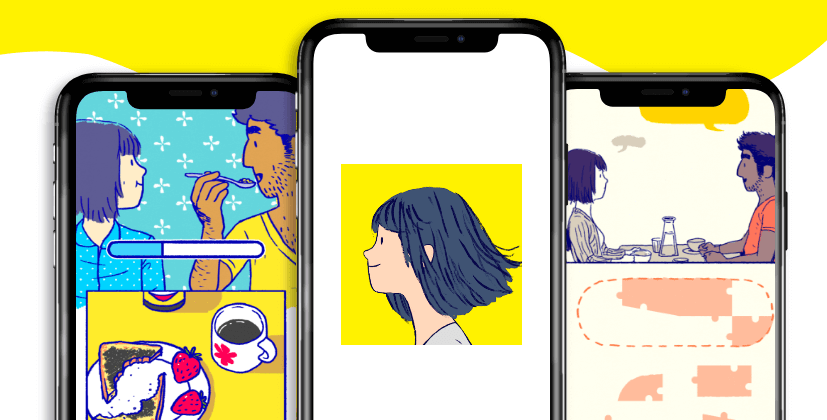 All patients need to do is simply write down the medicine they need to take, how many times a day they need to take it, and the time. Florence then automatically sends a message to its users each time they need to take it.
Patients can interact with Florence inside popular messaging platforms, like Facebook Messenger, Skype, and Kik. The app can even send relevant information about different diseases and locate a doctor or pharmacy near their location.
All patients need to do is simply write down the medicine they need to take, how many times a day they need to take it, and the time. Florence then automatically sends a message to its users each time they need to take it.
Patients can interact with Florence inside popular messaging platforms, like Facebook Messenger, Skype, and Kik. The app can even send relevant information about different diseases and locate a doctor or pharmacy near their location.
Scheduling an appointment over the phone can be extremely time-consuming for all parties involved. A patient would need to phone their local clinic and the operator would need to check their schedule to see what slots are available. All of this back-and-forth can lead to higher administrative costs.
Some chatbots, like Hello Tars, enable healthcare facilities to help their patients book appointments with the right doctor.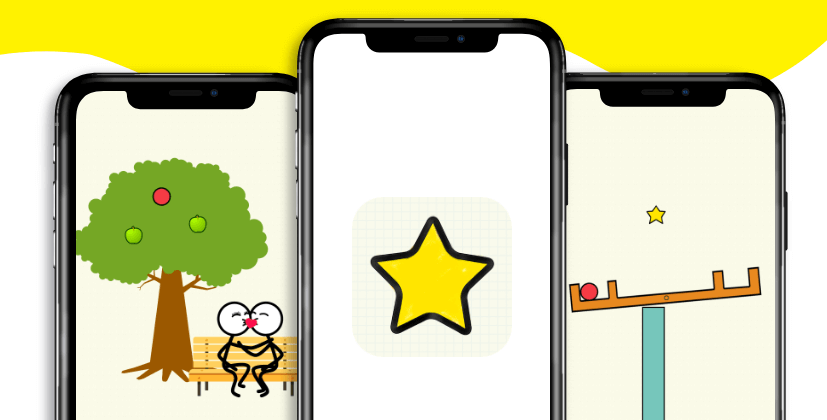 Patients can launch the scheduling bot from a website or even access it from their mobile device while on the go. Some chatbots can even send reminders to patients to let them know that they have an appointment as well as what specific actions they need to take afterwards.
Chatbots have practical applications for businesses as well. They can be integrated with automation tools to generate leads and follow up with them.
Patients can launch the scheduling bot from a website or even access it from their mobile device while on the go. Some chatbots can even send reminders to patients to let them know that they have an appointment as well as what specific actions they need to take afterwards.
Chatbots have practical applications for businesses as well. They can be integrated with automation tools to generate leads and follow up with them.
Chatbots, as we've seen from the examples above, are well-suited to handle many healthcare tasks from providing informational content to streamlining scheduling — all of which translates to huge cost savings.
A study from Juniper Research found that chatbots can help save businesses in the retail, eCommerce, banking, and healthcare industries an estimated $8 billion a year by 2022. Businesses can save on having to hire additional customer support representatives and providing the necessary training.
The goal for any healthcare provider is to provide exceptional services to their patients. Chatbots are a great way to collect feedback. Healthcare providers can use that feedback to make their practice even better.
Sending out customer surveys may work. But patients may not always have the time to fill them out or they might simply not be willing to.Joy Organics uses chatbots in its business to measure customer satisfaction. They created a chatbot to collect feedback. Customers can chat with the bot and rate their overall shopping experience.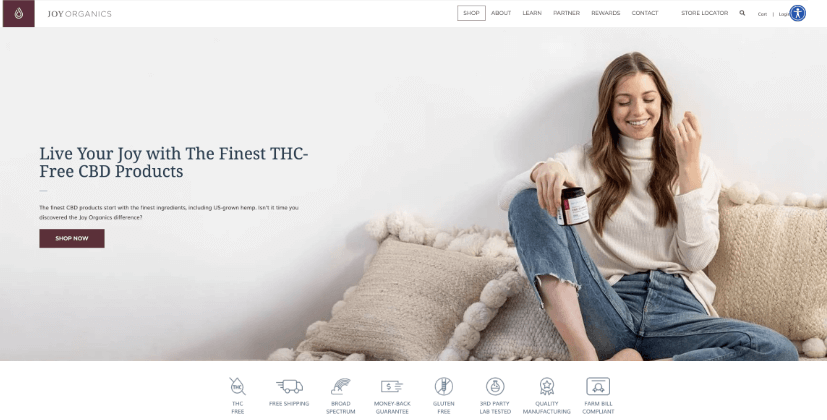 This kind of insight has helped Joy Organics improve their customer services. Likewise, healthcare providers can use chatbots in a similar manner to gather feedback from their patients and see where they can improve.
Businesses can also use chatbots to collect feedback. For example, a company like Drink LMNT can send a quick message to customers and ask them to evaluate a recent purchase of electrolyte drinks:
This kind of insight has helped Joy Organics improve their customer services. Likewise, healthcare providers can use chatbots in a similar manner to gather feedback from their patients and see where they can improve.
Businesses can also use chatbots to collect feedback. For example, a company like Drink LMNT can send a quick message to customers and ask them to evaluate a recent purchase of electrolyte drinks: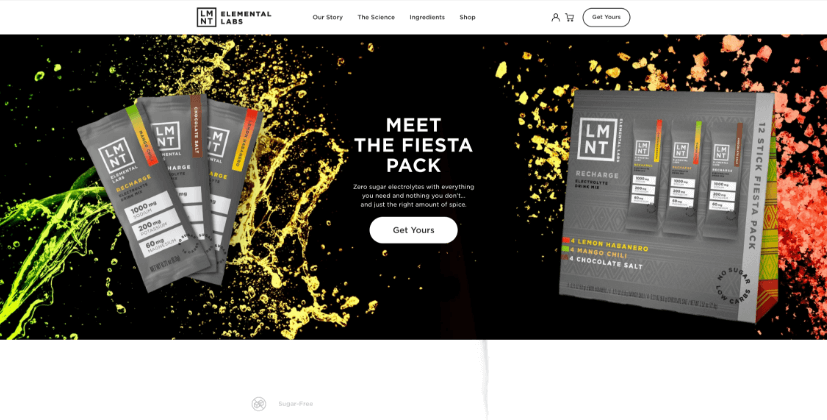 Collecting customer feedback works because it shows you value their opinions. Of course, it’s important to actively listen to what customers are saying and make efforts to improve operations.
Collecting customer feedback works because it shows you value their opinions. Of course, it’s important to actively listen to what customers are saying and make efforts to improve operations.
The medical billing process allows healthcare providers to receive compensation for the treatment they provide patients. However, sending invoices and keeping track of payments can be costly and time-consuming.
In addition to facilitating appointments, chatbots can also be used to automate invoicing. For example, a chatbot can be programmed to send an invoice and collect payment after a patient meets with their doctor. This can help reduce administrative costs: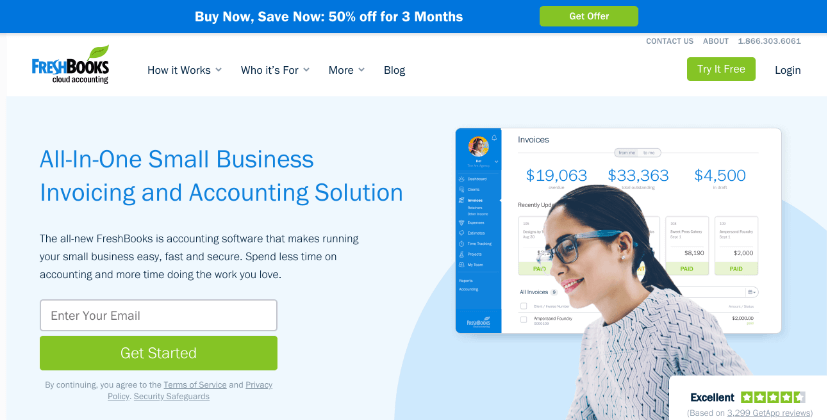
Chatbots aren’t limited to providing support for patients. They can also be used to facilitate internal communications for employees.
For example, employees that have questions about a particular process can visit the company’s site and interact with a chatbot to get help. Healthcare providers can even set up chatbots to link to training videos and other relevant materials.
Another advantage of chatbots for the healthcare industry is they can improve SEO. Google relies on hundreds of different factors to determine rankings. One of these is dwell time — how long a user stays on a page.
Dwell time is important because it’s an indication of engagement. If a visitor lands on a site and quickly closes the page, it indicates they didn’t find what they were looking for. On the other hand, if a visitor spends time on a site, it indicates they found the content interesting enough to stay on the page.
A study published on Moz even found an indication between time on site (dwell time) and organic rankings.
By utilizing chatbots, companies like LFA Capsule Fillers can generate high-level engagement with their visitors and improve their overall SEO in the process.Conclusion
Chatbots are undoubtedly beneficial. Those in the healthcare industry can implement them on their sites to help patients get timely medical advice, schedule appointments, send daily reminders, and even send invoices. Chatbots are powerful tools. But it’s important to first define your expectations before you implement them. Start small and evaluate your chatbot on a regular basis.Related Articles
- Lime Green Color: Meaning, Similar Colors & How to Create Design using Lime Green Color
- How to Create a Minimalistic Poster Design [9 Tips & Tricks]
- What is the variance between fungible and Non-fungible?
- 10 Fascinating Online Shopping Stats To Quote in Your E-commerce Proposals
- LinkedIn Premium Account Benefits – Why it’s Not Worth it
- Fuchsia Color: A Journey into Bright and Bold Hues
- Maximize Your Mac Space: How to Hide Dock and Menu Bar for More Space
- How to Build a Lead Generation Chatbot?
- How Call Centers are Reshaping Customer Support in the Digital Age
- Direct Response Marketing Examples to Increase Engagement & Sales
Most Popular Posts
- AI and User Experience: Enhancing Tomorrow’s Digital World
- Customer Support: Definition, Importance, Benefits + Best Strategies for Customer Satisfaction
- The Different Ways to Socialize on Roblox
- 10 Best Wave Integrations for Small Businesses
- What is a Pictogram and When to Use It: A Comprehensive Guide
